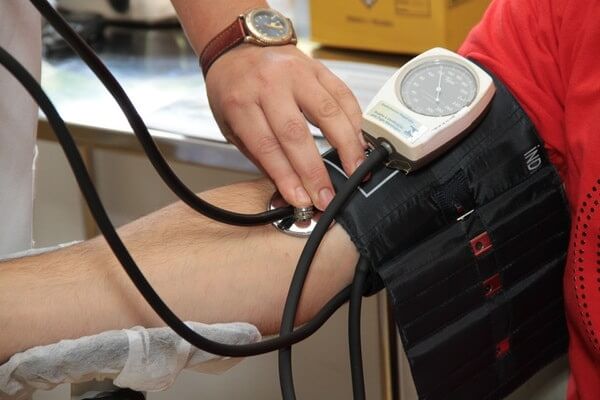Effects of Bariatric Surgery on Different Types of Cholesterol

It’s common knowledge high cholesterol is unhealthy, but not all cholesterol is created equally, and more than simple food intake affects cholesterol levels in the body. And while you may hear plenty about this biological material, you may not know what it does or why you have higher levels than you’d imagined.
For obese patients, cholesterol is a serious concern which can be alleviated with help from a weight loss surgeon. To learn more about the effects of bariatric surgery on fat levels, read our blog or call our office with additional questions.
What is Cholesterol and How Does it Affect Health?
Cholesterol is fat (scientifically called a lipid) and is naturally found in many parts of the body at the cellular level. When cholesterol is present in high volumes, however, it creates the risk for dangerous health problems which affect the heart.
Healthy cholesterol function is responsible for digestion, as well as the creation and absorption of specific natural compounds, such as vitamins and hormones. However, high levels of cholesterol can create a build-up in the natural highways of the body, including the arteries. A lack of proper blood flow here can make your heart work harder to push blood through the body. This puts patients at a significantly elevated risk for heart attack, high blood pressure, stroke, and other fatal conditions. Individuals who have a healthy BMI can be susceptible to high cholesterol, just like someone who is obese; however, morbidly overweight patients have already placed a strain on their heart. With the addition of increased lipid levels, this becomes a high-risk and dangerous situation.
Different Types of Cholesterol Explained
Not all cholesterol is harmful, just as not all types of fat are – avocado and olive oil, for example, can be beneficial to your health in small doses. Foods that contain processed oils, on the other hand, can be detrimental.
Good cholesterol is carried by a substance in the body called high-density lipoprotein (HDL). There are many essential roles that HDL is responsible for as it moves through the bloodstream. HDL removes bad cholesterol and keeps blood cells healthy, protecting them from damage. The liver works in conjunction with HDL to help eliminate bad fats from the body.
“Dietary fats are energy-dense foods, with fat generating 9 calories per gram, carbohydrates 4 calories per gram, proteins 4 calories per gram, and alcohol 7 calories per gram. After undergoing emulsification by bile secreted by the liver and gallbladder, most dietary fats are absorbed in the small intestine.” (Lipids and Bariatric Procedures, n.d.)
Low-density lipoprotein is the bad cholesterol and is responsible for clogging arteries, spiking blood pressure, and contributing to heart problems. While genetic conditions can create high cholesterol in otherwise healthy patients, eating habits and consumption of high-fat foods are mainly responsible for the increase in LDL in the body. Patients who smoke, have poor diets (red meat, fried foods, full-fat dairy), and those who do not exercise are likely to have high levels of LDL.
Bariatric Surgery and Reducing your Cholesterol
Types of bariatric surgery include those that reduce the stomach size (restrictive) and that reduce the length of the digestive tract, so fewer calories are processed (malabsorptive). Bariatric surgery retrains the body in many ways, and whether that’s in how you produce certain hormones that affect hunger levels, or how much food you can consume, weight loss treatment creates a positive effect on overall health. Specifically, concerning cholesterol levels:
“Bariatric procedures may affect gut hormones, which are important for nutrient digestion and metabolism, which in turn may affect lipid levels. Both the quantity and quality of foods (e.g., fats, carbohydrates, proteins, vitamins, minerals, trace elements, and other chemical compounds) can influence adipocyte and adipose tissue function.” (Lipids and Bariatric Procedures, n.d.)
Because poor eating habits and high cholesterol are linked, it would follow that a loss of weight and a change in dietary choices could prevent the progression of cholesterol issues and actively lower LDL. “[T]he cholesterol decrease correlates with loss of fat mass. Therefore, the main factor considered responsible for decreased cholesterol levels is weight loss.” (Benetti, et al., 2012)
A 2013 study conducted by Benetti, et al. intended to determine whether malabsorptive or restrictive surgery proved more beneficial in lowering cholesterol levels in bariatric patients who are classified as grade three obese (morbid obesity). Their findings were that “[m]alabsorptive surgery specifically affects cholesterol levels, independent of weight loss […]. [D]ecreased cholesterol and LDL cholesterol levels [were] accompanied by enhanced cholesterol synthesis […].” (Benetti, et al., 2012)
The conclusion? A personalized bariatric surgery program is effective at aligning healthy cholesterol and protecting your wellness in the long term.
No matter which bariatric method you choose, you can enjoy all the health benefits that come with reduced LDL and a lighter frame. If you have questions about bariatric surgery and your health, please contact Dr. Lutfi today to learn more about how we can help.
References
Lipids and bariatric procedures Part 2 of 2: Scientific statement from the American Society for Metabolic and Bariatric Surgery (ASMBS), the National Lipid Association (NLA), and Obesity Medicine Association (OMA). (n.d.). Retrieved July 12, 2018, from https://asmbs.org/resources/lipids-and-bariatric-procedures-part-2
Benetti, A., Puppo, M. D., Crosignani, A., Veronelli, A., Masci, E., Frige, F., . . . Pontiroli, A. E. (2012). Cholesterol Metabolism After Bariatric Surgery in Grade 3 Obesity: Differences between malabsorptive and restrictive procedures. Diabetes Care, 36(6), 1443-1447. doi:10.2337/dc12-1737
